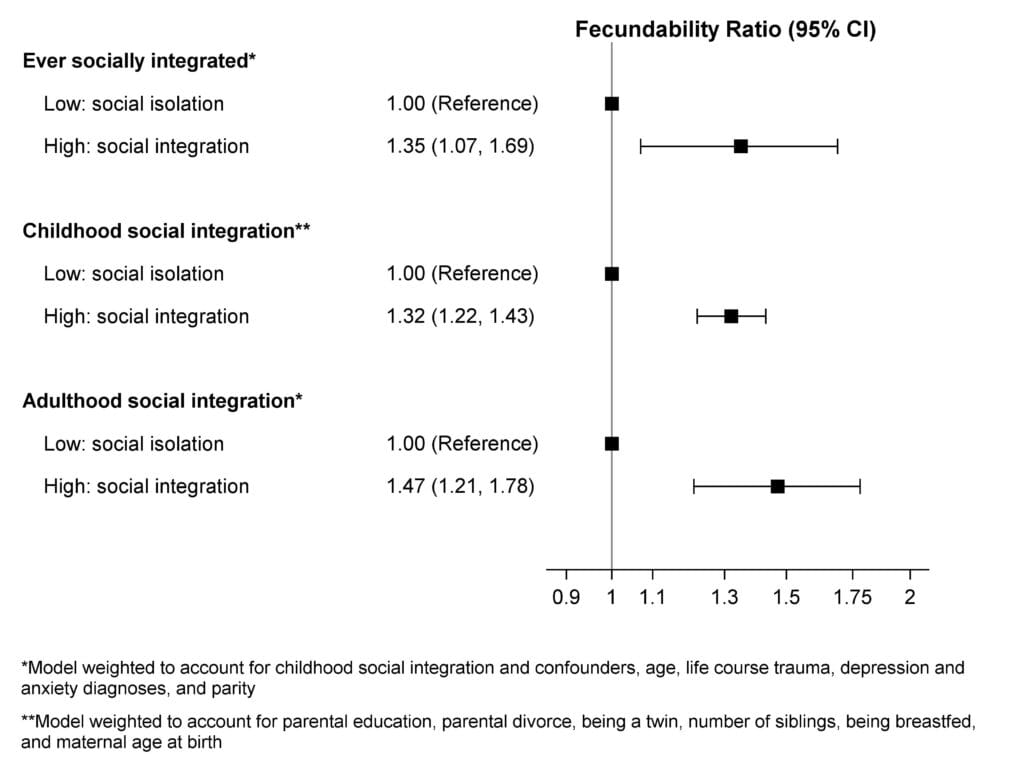Social
Association of life course social integration with fecundability Molly Hoffman* Molly Hoffman Collette
Background: Social isolation is increasing among U.S. adults and has been associated with adverse health, but the association between social integration and fecundability is not well known.
Methods: We examined the association between life course social integration and fecundability in Pregnancy Study Online (PRESTO), a preconception cohort study of U.S. and Canadian females aged 21-45 years (2013-2024). Eligible participants completed a supplemental questionnaire (SQ) on life course psychosocial factors at baseline (N=8,771). We assessed social integration with an adapted 8-item version of the Berkman-Syme Social Network Index (SNI) during childhood (<18 years) and adulthood (≥18 years) on the SQ. Summed SNI scores were categorized as <5 (socially isolated) and ≥5 (socially integrated). We estimated fecundability, the per-cycle probability of conception, from bimonthly follow-up questionnaires. We used inverse probability-weighted proportional probabilities models to estimate fecundability ratios (FR) and 95% CIs, accounting for confounding and selection bias.
Results: A majority of participants were socially integrated during at least one life stage (97%). Compared with social isolation, being socially integrated during any life stage was associated with increased fecundability (FR=1.35, 95% CI: 1.07-1.69). The association was similar for social integration during childhood (FR=1.32, 95% CI 1.22-1.43), but was notably stronger for social integration during adulthood (FR=1.47, 95% CI 1.21-1.78).
Conclusions: Social integration may have positive effects on fecundability, particularly during adulthood.

